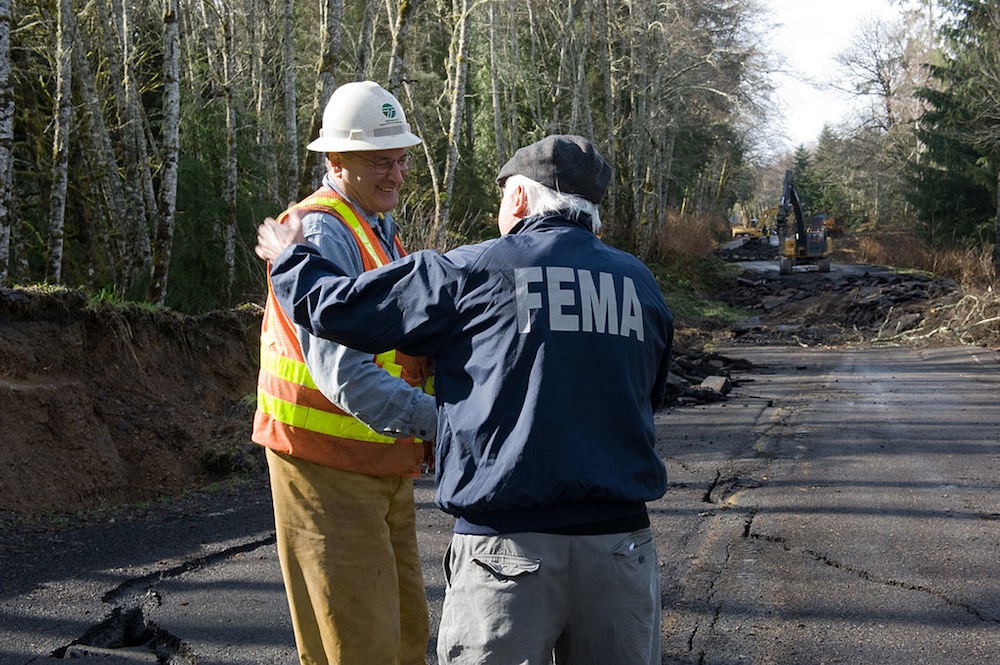An analysis of tidal levels and flood data by the news organization Reuters concludes that flooding has increased along the Eastern Seaboard over the past four decades.
During that period, the number of days a year that tidal waters reached or exceeded National Oceanic and Atmospheric Administration flood thresholds more than tripled in many places. The trend roughly tracks a global rise in sea levels, with an average rise of 8 inches in the past century, according to the 2014 National Climate Assessment.
At flood threshold, water begins pool on streets. If it rises beyond that point, it can close roads, damage property, and overwhelm drainage systems. Since 2001, water has reached flood levels an average of 20 days or more a year in Annapolis, Maryland; Wilmington, North Carolina; Washington, D.C.; Atlantic City, New Jersey; Sandy Hook, New Jersey; and Charleston, South Carolina. Before 1971, none of those locations averaged more than five days a year of flooding.
Reuters’s analysis was based on more than 25 million hourly tide-gauge readings from nearly 70 sites on the Atlantic, Gulf, and Pacific coasts and a comparison of that data to NOAA flood thresholds. Reuters then narrowed the analysis to 25 gauges with data spanning at least 50 years. The organization plans to publish a more in-depth examination of rising sea levels later this year.
(http://www.reuters.com/article/2014/07/10/us-usa-sealevel-flood-idUSKBN0FF20220140710)
Related Stories
Legislation | Oct 10, 2022
Chicago’s updated building energy code provides incentives for smart HVAC, water appliances
The Chicago City Council recently passed the 2022 Chicago Energy Transformation Code that is intended to align with the city’s goal of reducing carbon emissions by 62% from 2017 levels by 2040.
Contractors | Oct 6, 2022
Modular construction gets boost from impacts of the pandemic
The impact of the Covid pandemic on the construction industry appears to be fueling demand for modular construction methods, especially in the western U.S. and Canada.
Fire and Life Safety | Oct 4, 2022
Fire safety considerations for cantilevered buildings
Bold cantilevered designs are prevalent today, as developers and architects strive to maximize space, views, and natural light in buildings. Cantilevered structures, however, present a host of challenges for building teams, according to José R. Rivera, PE, Associate Principal and Director of Plumbing and Fire Protection with Lilker.
Resiliency | Sep 30, 2022
Designing buildings for wildfire defensibility
Wold Architects and Engineers' Senior Planner Ryan Downs, AIA, talks about how to make structures and communities more fire-resistant.
| Sep 30, 2022
Lab-grown bricks offer potential low-carbon building material
A team of students at the University of Waterloo in Canada have developed a process to grow bricks using bacteria.
| Sep 27, 2022
New Buildings Institute released the Existing Building Decarbonization Code
New Buildings Institute (NBI) has released the Existing Building Decarbonization Code.
| Sep 22, 2022
Gainesville, Fla., ordinance requires Home Energy Score during rental inspections
The city of Gainesville, Florida was recently recognized by the U.S. Dept. of Energy for an adopted ordinance that requires rental housing to receive a Home Energy Score during rental inspections.
| Sep 19, 2022
New York City construction site inspections, enforcement found ‘inadequate’
A new report by the New York State Comptroller found that New York City construction site inspections and regulation enforcement need improvement.
| Sep 16, 2022
Fairfax County, Va., considers impactful code change to reduce flood risk
Fairfax County, Va., in the Washington, D.C., metro region is considering a major code change to reduce the risk from floods.
| Sep 13, 2022
California building codes now allow high-rise mass-timber buildings
California recently enacted new building codes that allow for high-rise mass-timber buildings to be constructed in the state.

















